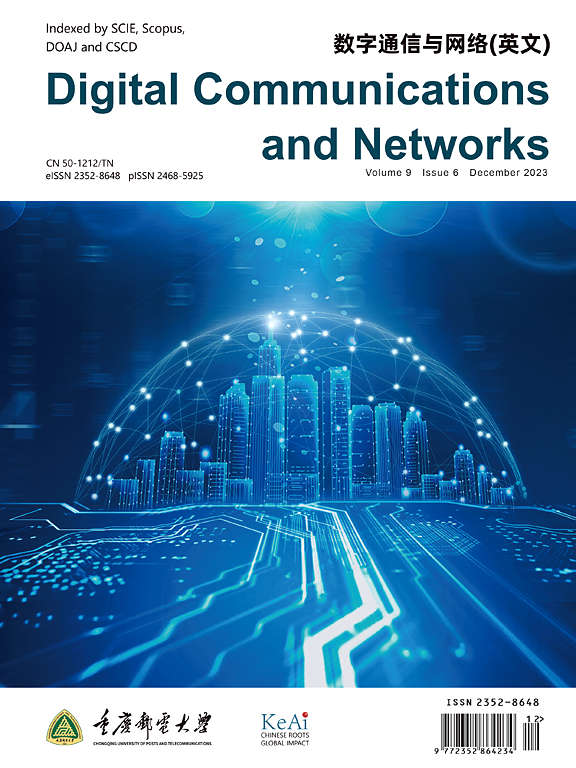A blockchain-based anonymous and regulated e-taxing protocol for art trading
IF 7.5
2区 计算机科学
Q1 TELECOMMUNICATIONS
引用次数: 0
Abstract
Taxation, the primary source of fiscal revenue, has profound implications in guiding resource allocation, promoting economic growth, adjusting social wealth distribution, and enhancing cultural influence. The development of e-taxation provides a enhanced security for taxation, but it still faces the risk of inefficiency and tax data leakage. As a decentralized ledger, blockchain provides an effective solution for protecting tax data and avoiding tax-related errors and fraud. The introduction of blockchain into e-taxation protocols can ensure the public verification of taxes. However, balancing taxpayer identity privacy with regulation remains a challenge. In this paper, we propose a blockchain-based anonymous and regulatory e-taxation protocol. This protocol ensures the supervision and tracking of malicious taxpayers while maintaining honest taxpayer identity privacy, reduces the storage needs for public key certificates in the public key infrastructure, and enables self-certification of taxpayers' public keys and addresses. We formalize the security model of unforgeability for transactions, anonymity for honest taxpayers, and traceability for malicious taxpayers. Security analysis shows that the proposed protocol satisfies unforgeability, anonymity, and traceability. The experimental results of time consumption show that the protocol is feasible in practical applications.
一种基于区块链的匿名和受监管的艺术品交易电子征税协议
税收是财政收入的主要来源,在引导资源配置、促进经济增长、调节社会财富分配、增强文化影响力等方面具有深远意义。电子税收的发展为税收提供了更高的安全性,但也面临着效率低下和税收数据泄露的风险。区块链作为一个去中心化的账本,为保护税务数据、避免涉税错误和欺诈提供了有效的解决方案。在电子税收协议中引入区块链可以保证税收的公开核查。然而,在纳税人身份隐私和监管之间取得平衡仍是一项挑战。在本文中,我们提出了一种基于区块链的匿名和监管电子税收协议。该协议保证了对恶意纳税人的监督和跟踪,同时维护了诚实纳税人的身份隐私,减少了公钥基础设施中公钥证书的存储需求,实现了纳税人公钥和地址的自我认证。我们形式化了交易的不可伪造性、诚实纳税人的匿名性和恶意纳税人的可追溯性的安全模型。安全性分析表明,该协议满足不可伪造性、匿名性和可追溯性。时间消耗实验结果表明,该协议在实际应用中是可行的。
本文章由计算机程序翻译,如有差异,请以英文原文为准。
求助全文
约1分钟内获得全文
求助全文
来源期刊

Digital Communications and Networks
Computer Science-Hardware and Architecture
CiteScore
12.80
自引率
5.10%
发文量
915
审稿时长
30 weeks
期刊介绍:
Digital Communications and Networks is a prestigious journal that emphasizes on communication systems and networks. We publish only top-notch original articles and authoritative reviews, which undergo rigorous peer-review. We are proud to announce that all our articles are fully Open Access and can be accessed on ScienceDirect. Our journal is recognized and indexed by eminent databases such as the Science Citation Index Expanded (SCIE) and Scopus.
In addition to regular articles, we may also consider exceptional conference papers that have been significantly expanded. Furthermore, we periodically release special issues that focus on specific aspects of the field.
In conclusion, Digital Communications and Networks is a leading journal that guarantees exceptional quality and accessibility for researchers and scholars in the field of communication systems and networks.
 求助内容:
求助内容: 应助结果提醒方式:
应助结果提醒方式:


